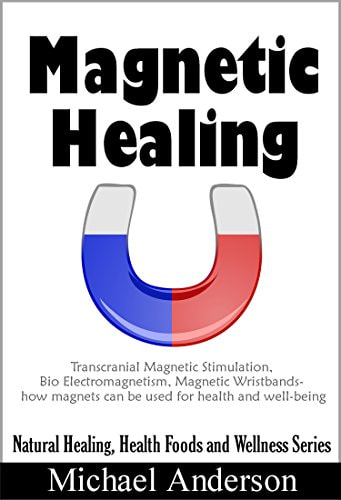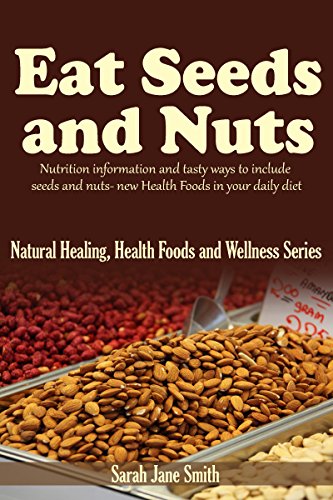| | Among the nutritional benefits of eating carrots is the presence of Beta-carotene, which boosts your immune system and fights free radicals. This antioxidant also improves your eyesight and reduces your risk of cancer. Beta-carotene fights free radicals Adding beta-carotene to your diet may help protect against free radicals, the unstable molecules that cause damage to your body's cells. |
Research shows that oxidative stress and cell damage are linked to a host of chronic conditions, including heart disease and cancer.
Free radicals are created during normal metabolic processes in the body. They are oxygen-containing molecules that are unstable and search for an electron to pair with. They attack proteins, lipids, and nucleic acids, and contribute to diseases like cancer and heart disease. However, not all free radicals can be eliminated.
The best way to keep free radicals from damaging your body is to eat a well-balanced diet rich in fruits and vegetables. These foods are loaded with vitamins, minerals, and antioxidants. You will also find beta-carotene, lutein, and other carotenoids. These compounds give fruits and vegetables their vibrant hues.
Antioxidants are beneficial because they protect the inside of your cells, and prevent damage from free radicals. They are found in green leafy vegetables, fruits, and other foods. They are also added to supplements, beauty products, and processed foods. However, there is some evidence that supplements may not be as protective as foods. You should speak with your doctor or pharmacist before taking supplements.
In addition, your body may not be able to produce antioxidants on its own. It needs them to prevent damage from free radicals. This can make antioxidants important.
Antioxidants can help you keep free radicals in check, but they are not a magic pill. Some supplements may interact with medications, and your doctor may recommend you take a supplement that is more specific to your condition.
Beta-carotene is an antioxidant found in foods, like carrots. It is also converted into vitamin A, or retinol. It may benefit brain health, eye health, and lung health. But there are not enough studies to confirm that supplements are effective.
Free radicals are created during normal metabolic processes in the body. They are oxygen-containing molecules that are unstable and search for an electron to pair with. They attack proteins, lipids, and nucleic acids, and contribute to diseases like cancer and heart disease. However, not all free radicals can be eliminated.
The best way to keep free radicals from damaging your body is to eat a well-balanced diet rich in fruits and vegetables. These foods are loaded with vitamins, minerals, and antioxidants. You will also find beta-carotene, lutein, and other carotenoids. These compounds give fruits and vegetables their vibrant hues.
Antioxidants are beneficial because they protect the inside of your cells, and prevent damage from free radicals. They are found in green leafy vegetables, fruits, and other foods. They are also added to supplements, beauty products, and processed foods. However, there is some evidence that supplements may not be as protective as foods. You should speak with your doctor or pharmacist before taking supplements.
In addition, your body may not be able to produce antioxidants on its own. It needs them to prevent damage from free radicals. This can make antioxidants important.
Antioxidants can help you keep free radicals in check, but they are not a magic pill. Some supplements may interact with medications, and your doctor may recommend you take a supplement that is more specific to your condition.
Beta-carotene is an antioxidant found in foods, like carrots. It is also converted into vitamin A, or retinol. It may benefit brain health, eye health, and lung health. But there are not enough studies to confirm that supplements are effective.
Carrots are high in dietary fiber
Adding carrots to your diet is a great way to boost your nutrition. These vegetables contain a wide variety of vitamins and minerals that will help keep you healthy.
Carrots are an excellent source of vitamin A, which helps protect your immune system. They are also packed with antioxidants that protect your body from free radical damage. These antioxidants are important for preventing disease, fighting inflammation, and guarding against harmful bacteria.
Beta carotene is one of the most important antioxidants found in carrots. It protects the body from damage caused by free radicals, and promotes healthy skin, eyes, and bones. Phytochemicals in carrots have also been studied for their anticancer properties. They have been found to activate proteins that inhibit cancer cells.
Carrots are an excellent source of vitamins A, B6, and K. They also contain potassium, a mineral that relaxes blood vessels, reducing elevated blood pressure. They also contain calcium, which helps strengthen bones.
Beta carotene also promotes bile production, which helps your body digest fat. Carrots are an excellent source of vitamin C, which helps your body create collagen, an important part of wound healing.
Carrots also contain fiber, which helps the digestive system absorb nutrients. Fiber may also help reduce blood pressure and blood cholesterol levels. Some studies show that fiber can also promote regular bowel movements. It also adds volume to the stomach, which helps you feel full and avoid overeating.
In addition to being an excellent source of fiber, carrots are packed with vitamins and minerals. Beta carotene helps prevent cognitive decline, and helps boost memory. It also protects the body from harmful viruses and bacteria. In addition to helping the immune system, carrots may help prevent oral and stomach cancer. They may also lower your risk of colon, prostate, and breast cancer.
Beta-carotene boosts immunity
Adding more beta-carotene to your diet is a great way to boost your immunity. This antioxidant is found in many foods. It works by neutralizing free radicals, which are unstable molecules that can cause cellular damage.
Several studies have found that beta-carotene reduces the risk of cancer. Among the studies, one showed that the risk of lung cancer was reduced by 40% when participants ate more beta-carotene.
Carrots are a great source of beta-carotene, and they're also rich in other important nutrients. In addition to beta-carotene, carrots contain vitamins A, C, and K. They are also a good source of fiber, which helps your body absorb nutrients. Fiber also protects your colon from serious illnesses.
Another benefit of eating carrots is their ability to reduce cholesterol. A high cholesterol level is a major cause of heart disease. It is also linked to strokes and atherosclerosis. Carrots are a great way to keep your heart healthy.
Carrots are also an excellent source of antioxidant agents. They have been found to protect the skin from UV rays. They can also help protect your eyes from age-related macular degeneration, one of the leading causes of blindness.
Beta-carotene has also been linked to improved cognitive function. Researchers suggest that long-term supplementation may help people with scleroderma, a condition that causes low levels of beta-carotene in the blood.
Beta-carotene is also thought to reduce the risk of macular degeneration. It is also believed to increase the number of white blood cells in the body, which can help the body fight off infection.
Eating carrots can also help you lose weight. Carrots are low in calories, and you can get a lot of the nutrients that you need in a small amount of food. They are also a good source of iron and pantothenic acid. These nutrients can help boost your immune system and prevent heart problems.
Beta-carotene improves eyesight
Getting enough beta-carotene in your diet is important for eye health. This antioxidant can help prevent vision problems, especially age-related macular degeneration.
Beta-carotene is a red-orange pigment that is found in carrots. It also occurs in sweet potatoes, apricots and cantaloupe. It is thought to prevent night blindness and other eye problems by providing protection against free radicals.
Beta-carotene also prevents dry eye syndrome, and it may reduce your risk of heart disease. Carrots are also high in lutein, an antioxidant that may protect the retina from free radicals. Lutein can improve your vision by filtering high-energy light waves, preventing them from damaging your retina.
Eating a variety of fruits and vegetables is a good way to improve your eyesight. However, if you are looking for a quick way to boost your Vitamin A, you can also take a supplement.
Carrots are high in antioxidants and beta-carotene, which can improve your eyesight. Including them in your diet can be a great way to protect your eyes from free radical damage, and they are also rich in other nutrients that are beneficial to your eyes.
You can also improve your vision by wearing sunglasses, and keeping up with a nutritious diet and regular eye exams. You can also reduce your screen time, and exercise regularly. Having a good diet is the best way to protect your eyes. You should also consult an eye doctor or optometrist for advice.
Vitamin A is a fat-soluble antioxidant that promotes healthy eye function. It also enhances the immune system's ability to fight infection. It also helps the eye form rod cells and cone cells, which help convert light into signals for the brain. Vitamin A deficiency can cause corneal degeneration and blurred vision.
Beta-carotene reduces risk of cancer
Several studies suggest that beta-carotene reduces the risk of cancer. Beta-carotene is an antioxidant and a precursor to vitamin A. Vitamin A plays a critical role in the growth and function of many organs. Beta-carotene is also important for vision and reproduction.
Beta-carotene is found in a number of foods. These include carrots, peppers, squash, oranges, and yellows. Beta-carotene is also found in certain animal products such as milk and cheese. Its antioxidant properties can help fight free radicals that can damage cells.
Beta-carotene was initially believed to reduce the risk of lung and prostate cancer, but this theory has recently been challenged by certain research findings. However, these reports did not necessarily distinguish dietary sources of carotenoids from supplemental sources.
Beta-carotene may also reduce the risk of cancer by improving sun sensitivity. While dietary beta-carotene provides some sun protection, it does not offer the same protection as topical sunscreen.
Carotenoids are a family of compounds that give fruits and vegetables their orange and yellow colors. They also have antioxidant properties that can help fight free radicals and protect against cancer. They also have anti-inflammatory properties. In some laboratory studies, they have shown to be helpful in preventing inflammation.
So bottom line is that carrots not only taste great and a favorite vegetable of young and old alike, it has several nutritional benefits that can improve your overall health and wellbeing.
Adding carrots to your diet is a great way to boost your nutrition. These vegetables contain a wide variety of vitamins and minerals that will help keep you healthy.
Carrots are an excellent source of vitamin A, which helps protect your immune system. They are also packed with antioxidants that protect your body from free radical damage. These antioxidants are important for preventing disease, fighting inflammation, and guarding against harmful bacteria.
Beta carotene is one of the most important antioxidants found in carrots. It protects the body from damage caused by free radicals, and promotes healthy skin, eyes, and bones. Phytochemicals in carrots have also been studied for their anticancer properties. They have been found to activate proteins that inhibit cancer cells.
Carrots are an excellent source of vitamins A, B6, and K. They also contain potassium, a mineral that relaxes blood vessels, reducing elevated blood pressure. They also contain calcium, which helps strengthen bones.
Beta carotene also promotes bile production, which helps your body digest fat. Carrots are an excellent source of vitamin C, which helps your body create collagen, an important part of wound healing.
Carrots also contain fiber, which helps the digestive system absorb nutrients. Fiber may also help reduce blood pressure and blood cholesterol levels. Some studies show that fiber can also promote regular bowel movements. It also adds volume to the stomach, which helps you feel full and avoid overeating.
In addition to being an excellent source of fiber, carrots are packed with vitamins and minerals. Beta carotene helps prevent cognitive decline, and helps boost memory. It also protects the body from harmful viruses and bacteria. In addition to helping the immune system, carrots may help prevent oral and stomach cancer. They may also lower your risk of colon, prostate, and breast cancer.
Beta-carotene boosts immunity
Adding more beta-carotene to your diet is a great way to boost your immunity. This antioxidant is found in many foods. It works by neutralizing free radicals, which are unstable molecules that can cause cellular damage.
Several studies have found that beta-carotene reduces the risk of cancer. Among the studies, one showed that the risk of lung cancer was reduced by 40% when participants ate more beta-carotene.
Carrots are a great source of beta-carotene, and they're also rich in other important nutrients. In addition to beta-carotene, carrots contain vitamins A, C, and K. They are also a good source of fiber, which helps your body absorb nutrients. Fiber also protects your colon from serious illnesses.
Another benefit of eating carrots is their ability to reduce cholesterol. A high cholesterol level is a major cause of heart disease. It is also linked to strokes and atherosclerosis. Carrots are a great way to keep your heart healthy.
Carrots are also an excellent source of antioxidant agents. They have been found to protect the skin from UV rays. They can also help protect your eyes from age-related macular degeneration, one of the leading causes of blindness.
Beta-carotene has also been linked to improved cognitive function. Researchers suggest that long-term supplementation may help people with scleroderma, a condition that causes low levels of beta-carotene in the blood.
Beta-carotene is also thought to reduce the risk of macular degeneration. It is also believed to increase the number of white blood cells in the body, which can help the body fight off infection.
Eating carrots can also help you lose weight. Carrots are low in calories, and you can get a lot of the nutrients that you need in a small amount of food. They are also a good source of iron and pantothenic acid. These nutrients can help boost your immune system and prevent heart problems.
Beta-carotene improves eyesight
Getting enough beta-carotene in your diet is important for eye health. This antioxidant can help prevent vision problems, especially age-related macular degeneration.
Beta-carotene is a red-orange pigment that is found in carrots. It also occurs in sweet potatoes, apricots and cantaloupe. It is thought to prevent night blindness and other eye problems by providing protection against free radicals.
Beta-carotene also prevents dry eye syndrome, and it may reduce your risk of heart disease. Carrots are also high in lutein, an antioxidant that may protect the retina from free radicals. Lutein can improve your vision by filtering high-energy light waves, preventing them from damaging your retina.
Eating a variety of fruits and vegetables is a good way to improve your eyesight. However, if you are looking for a quick way to boost your Vitamin A, you can also take a supplement.
Carrots are high in antioxidants and beta-carotene, which can improve your eyesight. Including them in your diet can be a great way to protect your eyes from free radical damage, and they are also rich in other nutrients that are beneficial to your eyes.
You can also improve your vision by wearing sunglasses, and keeping up with a nutritious diet and regular eye exams. You can also reduce your screen time, and exercise regularly. Having a good diet is the best way to protect your eyes. You should also consult an eye doctor or optometrist for advice.
Vitamin A is a fat-soluble antioxidant that promotes healthy eye function. It also enhances the immune system's ability to fight infection. It also helps the eye form rod cells and cone cells, which help convert light into signals for the brain. Vitamin A deficiency can cause corneal degeneration and blurred vision.
Beta-carotene reduces risk of cancer
Several studies suggest that beta-carotene reduces the risk of cancer. Beta-carotene is an antioxidant and a precursor to vitamin A. Vitamin A plays a critical role in the growth and function of many organs. Beta-carotene is also important for vision and reproduction.
Beta-carotene is found in a number of foods. These include carrots, peppers, squash, oranges, and yellows. Beta-carotene is also found in certain animal products such as milk and cheese. Its antioxidant properties can help fight free radicals that can damage cells.
Beta-carotene was initially believed to reduce the risk of lung and prostate cancer, but this theory has recently been challenged by certain research findings. However, these reports did not necessarily distinguish dietary sources of carotenoids from supplemental sources.
Beta-carotene may also reduce the risk of cancer by improving sun sensitivity. While dietary beta-carotene provides some sun protection, it does not offer the same protection as topical sunscreen.
Carotenoids are a family of compounds that give fruits and vegetables their orange and yellow colors. They also have antioxidant properties that can help fight free radicals and protect against cancer. They also have anti-inflammatory properties. In some laboratory studies, they have shown to be helpful in preventing inflammation.
So bottom line is that carrots not only taste great and a favorite vegetable of young and old alike, it has several nutritional benefits that can improve your overall health and wellbeing.















